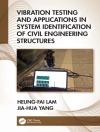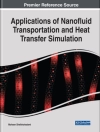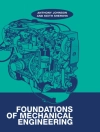This book focuses on in-situ transmission electron microscopy (TEM), an investigatory technique used to observe a sample’s response to a given stimulus (including electron irradiation, thermal excitation, mechanical force, optical excitation, electric and magnetic fields) at the nanoscale in real time. The book introduces readers to the technical strategy behind the in-situ technique and its developments. It reviews the research frontiers of using in-situ TEM in energy conversion and storage, catalysis, nanomaterials synthesis, nanoelectronics, etc. Furthermore, it discusses the future prospects for in-situ TEM. The book offers a valuable guide for all undergraduate and graduate students who are interested in TEM characterization technology. It also serves as a reference source on cutting-edge in-situ techniques for researchers and engineers.
Содержание
In-situ TEM: History and Status.- Electron irradiation effects and in-situ irradiation.- In-situ Nanomechanical TEM.- In-situ Heating TEM.- In-situ Basing TEM.- In-situ Photoelectric TEM.- Lorentz TEM.- Liquid cell TEM.- Environment TEM.- Ultrafast TEM.- Future of in-situ TEM.
Об авторе
Prof. Litao Sun received his Ph.D. from the Shanghai Institute of Applied Physics, Chinese Academy of Sciences in 2005. He worked as a research fellow at University of Mainz, Germany from 2005 to 2008, and a visiting professor at University of Strasbourg, France from 2009 to 2010. He joined Southeast University, Nanjing, China as a distinguished professor in 2008 and has been Vice President of Southeast University since 2021.
His current research interests include in-situ experimentation inside electron microscopes, graphene and related 2D materials, visualized atomic-scale fabrication, etc. He has published over 200 papers on international journals including Science, Nature, Nature Materials, Nature Nanotechnology, Nature Communications, etc.
He is a founding chairman of IEEE Nanotechnology Council Nanjing Chapter, and the chair of Professional Committee of In-situ Microscopy and Vice President of Chinese Electron Microscopy Society. He received the National Science Fund for Distinguished Young Scholars in 2015 and was honored as the “Cheung Kong Scholar” Chair Professor in 2016. He won the “Nano Research 2021 Young Innovator Award” and was selected as a Highly cited researcher by Clarivate Analytics every year from 2018.
Dr. Tao Xu received his B.S. and Ph. D. in 2009 and 2016 from Southeast University, China. He was a visiting student researcher at Lawrence Berkeley National Laboratory from 2014 to 2015. He was appointed to the faulty after graduating from the School of Electronic Science and Engineering, and promoted as associate research professor in 2019.
His current research interests focus on nanoscale structural evolution of materials using in situ TEM, and the development of fabrication methodologies for nanoscale materials.
Dr. Ze Zhang received his Ph. D. in 1987 from the Institute of Metal Research, Chinese Academy of Sciences and worked as a research professor from 1991 to 2003 in an Electron Microscopy Center of Chinese Academy of Science. He was a professor of Beijing University of Technology during 2003-2010, and has been a professor of Zhejiang University since 2010.
His research interests focused on electron microscopy study of advanced materials. He was one of the earlier researchers worked on quasicrystals in 1980s. In recent years, Prof. Zhang together with his research team has developed an advanced microscopy technique, with which in-situ external field can be introduced into the microscope retaining the atomic resolution. They successfully apply this advanced technique on in-situ electron microstructure study of the size effects of structural materials, especially on abnormal elasticity and strength of Ni-, Fe-, Cu-, Au-, Zr-, and some alloys. Some new phenomena and laws are dug out with regard to the relation between special properties and structure evolution. Moreover, the mechanism of theunusual transformation in nano-scale for the classic metal materials is revealed. Based on these studies, he has published more than 350 papers on international peer reviewed journals.
Prof. Dr. Zhang was elected as a member of Chinese Academy of Sciences in 2001. He has been serving as the chair of Academic Committee board of Zhejiang University since 2012. He is a chief scientist of national basic research program of China, former president of China Association for instrumental Analysis, and former president of Asia Pacific Electron Microscopy Association. He has won many honors include the State Natural Science Award, Ho Leung Ho Lee Award, etc.












